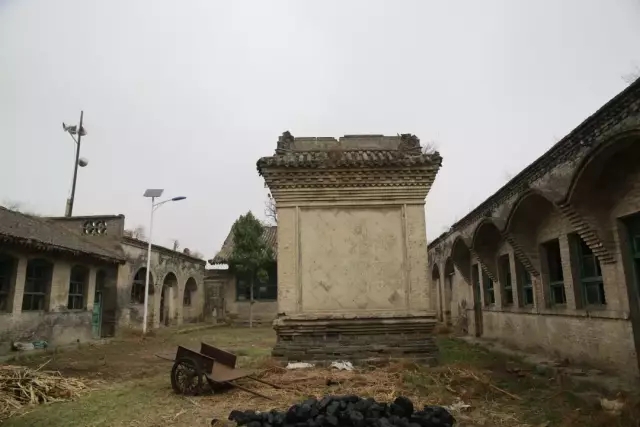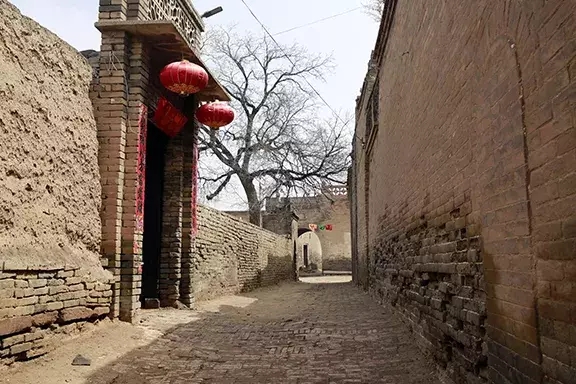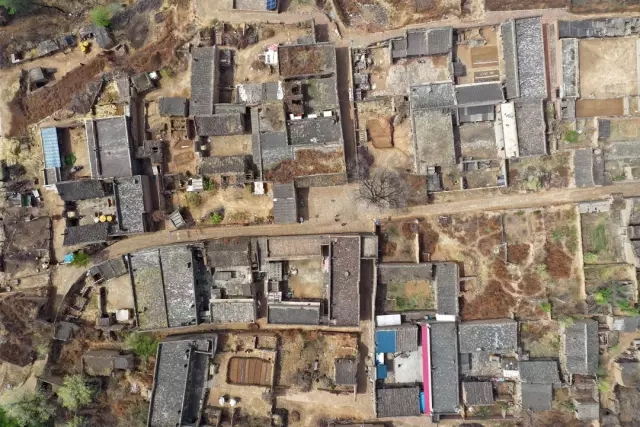中文版
(The English version is attached afterward.)
一、课程介绍
当今对文化遗产保护的讨论已经是一个跨学科的研究,考古学、建筑保护、社会学、人类学、旅游学、生态学、地理学、传媒与艺术等学科正在逐步加强合作。因此,运用综合手段来理解和保护文化遗产就显得尤为重要。以此为目标,2018年夏,北京大学考古文博学院杭侃教授与中山大学旅游学院张朝枝教授共同发起遗产旅游联合工作坊,开始了跨学科的学术和教学探索。2019年,联合工作坊正式获得北京大学研究生院创新计划立项,并扩大了学科联合的范围。
本次暑期课程将邀请各相关领域专家进行跨学科探讨,学员们参与其中不仅可以聆听名师教诲,还将分组进行田野调查,理论与实践相结合,体会文化遗产保护语境下多学科交融碰撞的魅力,共同为文化遗产保护助力。
本课程由北京大学考古文博学院主办,联合山西大学、中山大学等优质师资力量,组成集文化遗产保护、考古、建筑、旅游、社会、人类学、规划、景观、生态、自然地理、数字影像和艺术设计为一体的综合教学团队,前往山西省平遥县的东戈山村和西戈山村进行实地调研。平遥是世界文化遗产平遥古城、双林寺、镇国寺所在地,申遗成功至此时的二十年间,世人目光多关注以传统北方民居形态完整、古建筑丰富、人文社会历史遗存多而著称的平遥古城,忽视同样保有大量物质遗存及丰富人文资源的乡村地区。
东戈山和西戈山两个村落是平遥的传统村落,与中国许多传统村落一样面临着空心化现象,独留古旧沧桑的建筑还在原址伫立。本次暑期课程的目标在于利用跨学科的方法,在充分调查的基础上探讨保护和发展对策,令这一块古老而沉寂的土地重现生机。

东戈山村学校

西戈山村村貌
二、授课老师
1.主持教师:
杭 侃 北京大学考古文博学院教授,山西大学副校长
张剑葳 北京大学考古文博学院助理教授,副院长
张朝枝 中山大学旅游学院教授
2.特邀教师:(按照姓名首字母排序,以最终名单为准)
董 卫 东南大学建筑学院教授
杜晓帆 复旦大学文物与博物馆学系教授
李光涵 全球文化遗产基金会项目主任
梁 勇 山西大学美术学院教师 山西高校摄影联盟主席
Mary M Brooks 杜伦大学考古学系国际文化遗产管理专业主任
彭 建 北京大学城市与环境学院副教授
齐晓瑾 清华同衡规划设计研究院人文与创意城市研究所副所长
孙 华 北京大学考古文博学院教授
宋 峰 北京大学城市与环境学院副教授
3.助教团队及后勤总负责:
王思渝 北京大学考古文博学院博士后
三、时间、学时和地点
1.时间:2019年7月12日-7月20日
(7月11日自行抵达平遥,报到信息待下一步通知)
2.学时:72学时
3.地点:平遥县东戈山村、西戈山村
四、教学形式
专家授课+外出田调+工作坊
1.文化遗产保护、考古、建筑、旅游、社会、人类学、规划、景观、生态、自然地理、数字影像和艺术设计等各领域专家集中教学授课。
2.分小组田野调查实践:分为2队(东戈山村队&西戈山村队),10人一队;每队调研时再分为2组(东戈山村队A组/B组&西戈山村队A组/B组),5人一组。助教全程随队指导。
3.工作坊研讨、编制调查报告、专家点评与指导。
五、参考书目
[1]孙华.传统村落的性质与问题——我国乡村文化景观保护与利用邹议之一[J].中国文化遗产,2015(04)。
[2]孙华.传统村落保护的学科与方法——中国乡村文化景观保护与利用邹议之二[J].中国文化遗产,2015(05)。
[3]孙华.传统村落保护规划与行动——中国乡村文化景观保护与利用邹议之一[J].中国文化遗产,2015(06)。
[4]费孝通.乡土中国[M].北京:北京大学出版社。
[5]费孝通.江村经济[M].北京:北京大学出版社。
[6]风笑天.社会调查原理与方法[M].北京:首都经济贸易出版社。
[7]王金平,徐强,韩卫成编著.山西民居[M].北京:中国建筑工业出版社。
[8]李新建,张剑葳.祁县谷恋村小村庄古老愿景的规划实现[J].中国文化遗产,2013。
[9]贝拉·迪克斯,冯悦. 被展示的文化——当代“可参观性”的生产[M].北京:北京大学出版社。
[10]Melanie S. Issues in cultural tourism studies[M].New York: Routledge, 2003.
[11]Copeman, C. Picture this: a guide to scenario planning for voluntary organizations, London: NCVO,2006.
六、报名方法
1.招生人数:20人。
2.学校及专业方向:
本次暑期课程面向国内外招募大三以上本科及研究生。可参考的专业包含但不限于:文化遗产保护、考古、建筑、景观、规划、旅游、社会学、人类学、历史、文化产业等。
具体分组以实际报名和筛选情况为准。
3.国际学生:
为不超过2名国际学生提供奖学金
金额4000元/人
4.报名时间:即日起至6月15日。
5.报名方式:
将填好的《报名表》(点击下载)发送至报名邮箱pkuwysqkc@163.com。
邮件标题形式:“姓名+学校(或单位)”。需同时发送word版本和已盖院系红章的扫描版本。
6.录取通知:
主办方将于2019年6月20日前邮件通知录取学员,并告知下一步具体事宜。
七、证书
每位完成规定学时,并按期提交报告的学员,将获得北京大学研究生院颁发的暑期课程结业证书。
八、费用
1.学杂费:免收
2.其他费用:统一安排食宿,费用自理(约250元/人/天)
【主办单位】
主办:
北京大学考古文博学院
协办:
联合国教科文组织亚太地区世界遗产培训与研究中心(北京)(WHITRAP Beijing Center)
山西大学历史文化学院
中山大学旅游学院
平遥县自然资源局
资助:
北京大学研究生院“研究生教育创新计划”

东戈山村航拍

西戈山村航拍
英文版
2019 Summer Course Application: “Cultural Heritage Conservation Joint Workshop”, Peking University
1. ABOUT THE COURSE
Discussions regarding cultural heritage conservation nowadays have been interdisciplinary, and the cooperation among archaeology, architectural conservation, sociology, anthropology, tourism, ecology, geography, media and arts has been gradually strengthening. Therefore, it seems particularly critical to make comprehensive approaches useful when it comes to the understanding and conservation of cultural heritage. Taking this as a goal, Professor Hang Kan from School of Archaeology and Museology of Peking University and Professor Zhang Chaozhi from School of Tourism Management of Sun Yat-sen University jointly launched the Heritage and Tourism Joint Workshop in the summer of 2018, marking the beginning of interdisciplinary academic and teaching explorations. In 2019, the Joint Workshop has been officially granted the title of the innovative project of the Graduate School of Peking University, and the joint range of disciplines has been expanded.
This summer, experts of various disciplines will be invited to make interdisciplinary discussions, and participants will not only have a chance to listen to the lectures of famous experts, but they will also be organized to conduct field work and be intoxicated by the charm when disciplines meet in the context of cultural heritage conservation, thus jointly making a contribution to cultural heritage conservation.
The course is organized by School of Archaeology and Museology of Peking University, in collaboration with remarkable teachers and resources from Shanxi University, Sun Yat-sen University, etc. A comprehensive teaching team will be formed to integrate cultural heritage conservation, archaeology, architecture, tourism, sociology, anthropology, planning, landscape, ecology, natural geography, digital imaging and art design, and will conduct field work in Donggeshan Village and Xigeshan Village in Pingyao County, Shanxi Province. Pingyao is the home to the world’s cultural heritages, including the Ancient City of Pingyao, Shuanglin Temple and Zhenguo Temple. The world is mostly drawn to the Ancient City of Pingyao where you can find the completeness of traditional northern dwellings, the richness of ancient architectures, and a lot of humanistic, social and historical remains, while rural areas where there are also lots of tangible remains and humanistic resources have been overlooked.
Donggeshan and Xigeshan are two traditional villages in Pingyao, which are becoming empty just like many other traditional villages in China. The purpose of this summer course is to discuss conservation and development countermeasures based on full investigations through interdisciplinary methods.

a school in Donggeshan village

Xigeshan village
2. TEACHING TEAM
2.1 PRESIDING PROFESSOR:
Hang Kan Professor of School of Archaeology and Museology, Peking University;Vice President of Shanxi University
Zhang Jianwei Assistant Professor, Deputy Dean of School of Archaeology and Museology, Peking University
Zhang Chaozhi Professor of School of Tourism Management, Sun Yat-sen University
2.2 SPECIAL GUEST :
(SORT BY ALPHABET / SUBJECT TO THE FINAL LIST)
Dong Wei Professor of School of Architecture, Southeast University
Du Xiaofan Professor of the Department of Cultural Heritage and Museology, Fudan University
Li Guanghan Director of Programs, Global Heritage Fund
Liang Yong Lecturer of the Academy of Fine Arts, Shanxi University; Photography Alliance Chairman of Colleges in Shanxi
Mary M Brooks Director of MA International Cultural Heritage Management, Department of Archaeology, Durham University
Peng Jian Associate Professor of the College of Urban and Environmental Sciences, Peking University
Qi Xiaojin Deputy Director of the Department of humanistic and Creative City, Tsinghua Tongheng Urban Planning and Design Institute
Sun Hua Professor of School of Archaeology and Museology, Peking University
Song Feng Associate Professor of the College of Urban and Environmental Sciences, Peking University
2.3 LEADER OF THE ASSISTANT TEACHING TEAM:
Wang Siyu Postdoctoral of School of Archaeology and Museology, Peking University
3. DATE/CONTACT HOURS/ LOCATION
3.1 DATE:
July 12th—July 20th, 2019
(Participants will arrive in Pingyao on July 11th.)
3.2 CONTACT HOURS:72
3.3 LOCATION:
Donggeshan Village and Xigeshan Village in Pingyao County, Shanxi Province
4. COURSE MODULE
LECTURE+FIELD WORK+WORKSHOP
4.1 Lectures on Cultural Heritage Conservation, Archaeology, Architecture, Tourism, Sociology, Anthropology, Planning, Landscape, Ecology, Natural Geography, Digital Imaging and Art Design.
4.2 Field work,2 teams (with teaching assistants)
4.3 Workshop Discussion, Report Work, Expert Comments
5. BIBLIOGRAPHY
[1]孙华.传统村落的性质与问题——我国乡村文化景观保护与利用邹议之一[J].中国文化遗产,2015(04)。
[2]孙华.传统村落保护的学科与方法——中国乡村文化景观保护与利用邹议之二[J].中国文化遗产,2015(05)。
[3]孙华.传统村落保护规划与行动——中国乡村文化景观保护与利用邹议之一[J].中国文化遗产,2015(06)。
[4]费孝通.乡土中国[M].北京:北京大学出版社。
[5]费孝通.江村经济[M].北京:北京大学出版社。
[6]风笑天.社会调查原理与方法[M].北京:首都经济贸易出版社。
[7]王金平,徐强,韩卫成编著.山西民居[M].北京:中国建筑工业出版社。
[8]李新建,张剑葳.祁县谷恋村小村庄古老愿景的规划实现[J].中国文化遗产,2013(06)。
[9]贝拉•迪克斯,冯悦.被展示的文化——当代“可参观性”的生产[M].北京:北京大学出版社。
[10]Melanie S. Issues in cultural tourism studies[M].New York: Routledge.
[11]Copeman, C. Picture this: a guide to scenario planning for voluntary organizations , London: NCVO.
6. HOW TO APPLY
6.1 TOTAL PARTICIPANTS: 20.
6.2 QUALIFIED UNIVERSITIES AND MAJORS:
The summer course is open to undergraduate students who are juniors and above and graduate students from Chinese and foreign universities.
Majors include the following but are not limited to: cultural heritage conservation, archaeology, architecture, landscape, planning, tourism, sociology, anthropology, history, cultural industry, etc.
Specific grouping is subject to actual situation of application and screening.
6.3 INTERNATIONAL STUDENT:
Scholarships for no more than 2 international students, 4000 yuan / person.
6.4 REGISTRATION DATE:
from today to June 15th.
6.5 REGISTRATION METHOD:
Please send the application form you filled (click “Appendix1” to download it) to the e-mail address: pkuwysqkc@163.com
The title should be “your name + your university (or company)”. Meanwhile, please attach a Word version and a scanned version that is stamped with the seal of your school.
6.6 ADMISSION LETTER:
The sponsor will notify all recruited participants via e-mail before June 20th 2019.
7. CERTIFICATE
Every participant who has accomplished the contact hours and submitted the report will be granted a certificate of the summer course issued by the Graduate School of Peking University.
8. FEES
8.1 TUITION AND FEES: Free
8.2 OTHERS:
Accommodation will be arranged and on your own expense (approximately 250 yuan / person / day)
【ORGANIZER】
HOST :
School of Archaeology and Museology, Peking University
CO-ORGANIZER:
World Heritage Institute of Training and Research for the Asia and the Pacific Region under the auspices of UNESCO (WHITRAP) Beijing Center
College of History and Culture, Shanxi University
School of Tourism Management, Sun Yat-sen University
Natural Resources Bureau of Pingyao County
SPONSOR:
Graduate School of Peking University

an aerial view of Donggeshan Village

an aerial view of Xigeshan Village